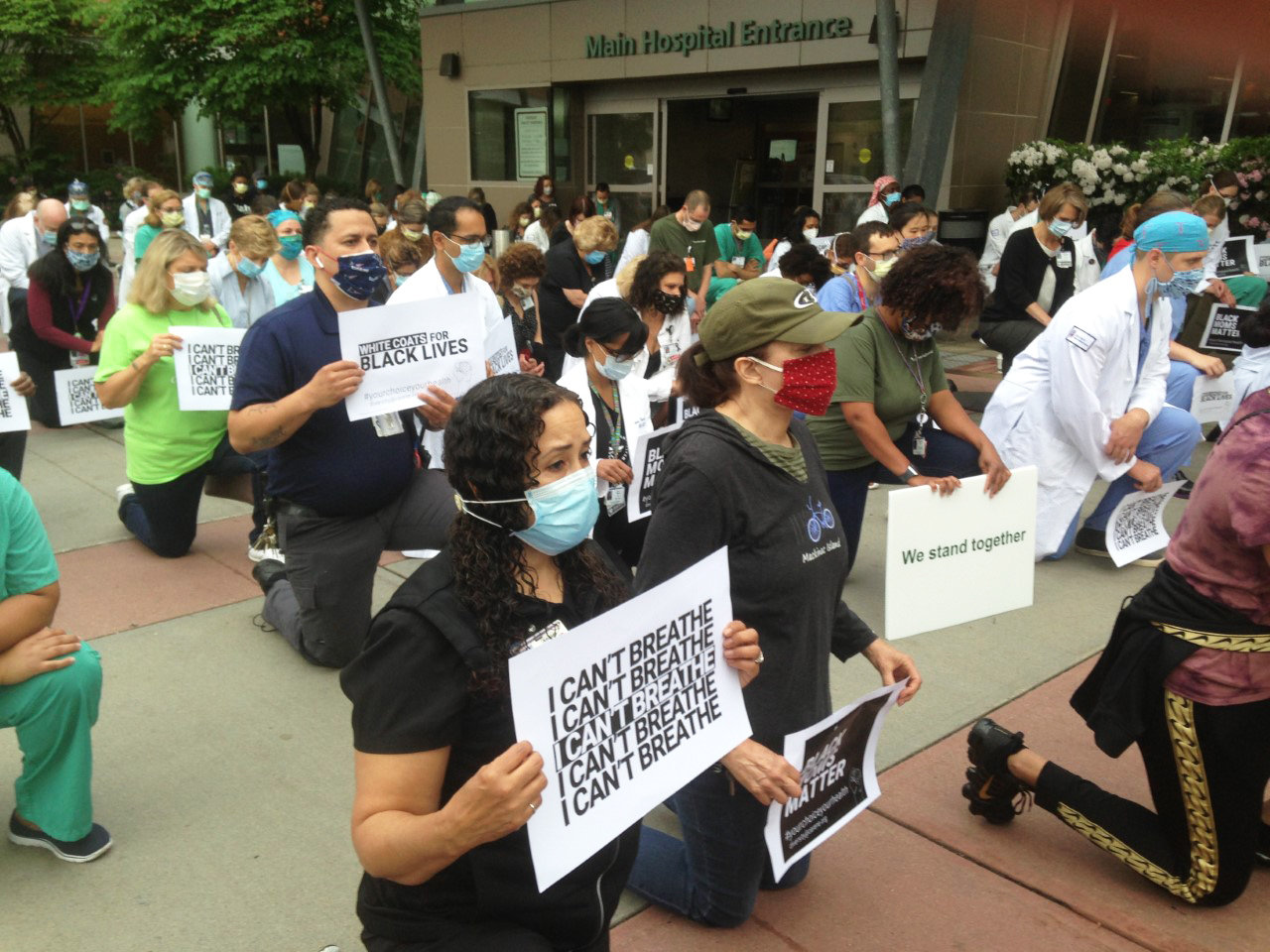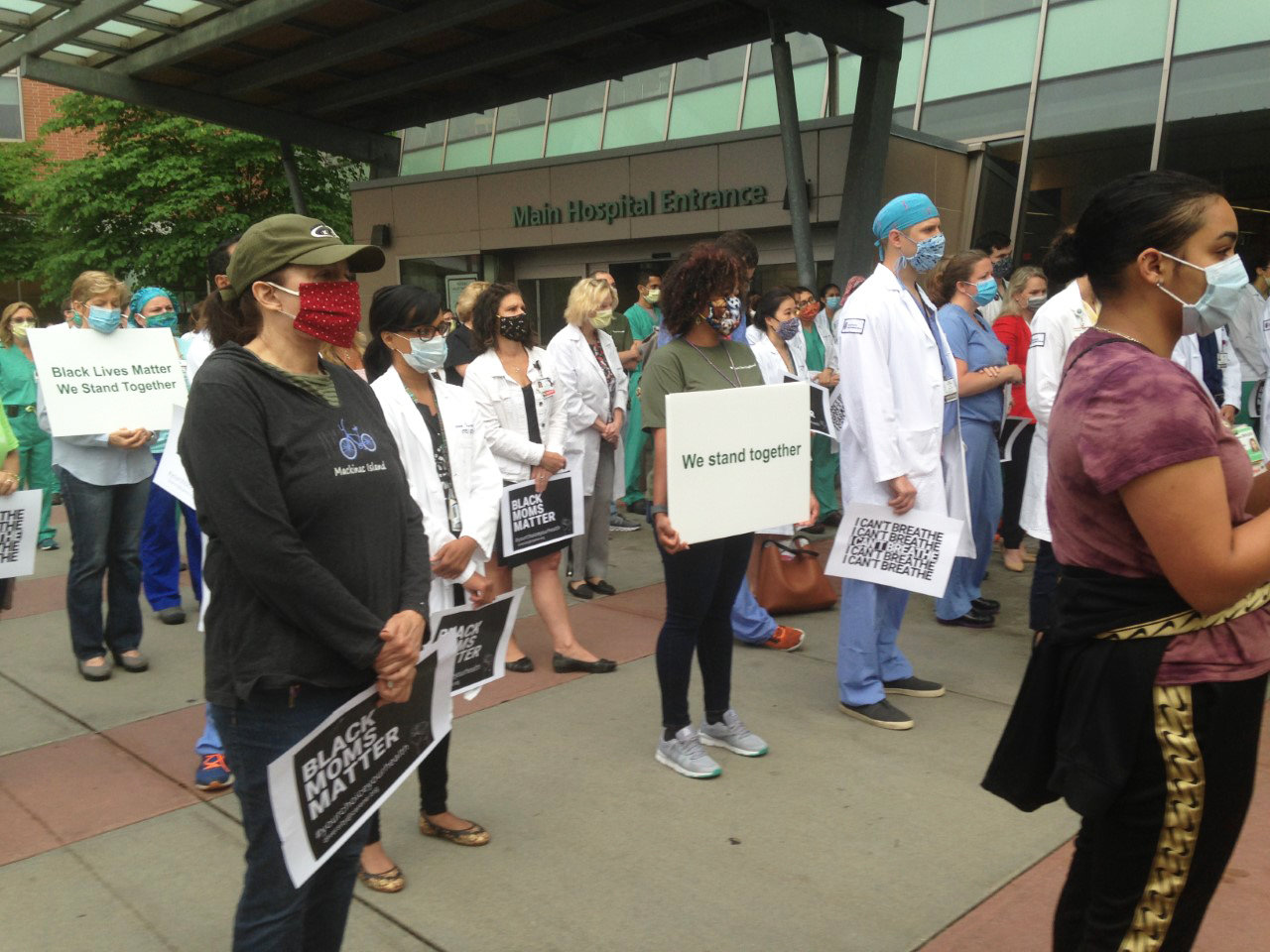Black moms matter
The staff at Women & Infants Hospital, with the support of the administration, held a silent protest, seeking to put renewed focus on correcting pervasive racial maternal health disparities
PROVIDENCE – As compared to recent protests following the killing of George Floyd by four Minneapolis police officers on June 1, it was a small, humble and poignant gathering.
More than 100 staff members at Women & Infants Hospital – nurses, nurse midwives, doctors, and top administrators – began their workday early on Friday morning, June 12, by kneeling down for 10 minutes of silence, in order to put a renewed focus on the fact that “black moms matter.”
Organized by staff members and residents, the gathering in front of the hospital’s main entrance emphasized the need to address and correct the prevalent maternal health disparities for black mothers in Rhode Island.
Women & Infants, of course, is the place where life begins for most Rhode Islanders, where nearly 80 percent of all infants in the state are born and take their first breaths. Which made the participants with their signs, including “I can’t breathe,” “Black moms matter,” and “White coats for black lives” all that more meaningful.
Dr. James Fanale, president and CEO of Care New England, the parent health system of Women & Infants Hospital, spoke briefly. Acknowledging that disparities in maternal health werea “rampant issue in our health care system,” Fanale pledged that the health system would be as diligent in correcting health inequities as “we are in managing our health care business.”
Racial maternal health disparities in the state are no secret, documented every year by Rhode Island Kids Count in their encyclopedic Factbook.
On a national level, stories such as “Why black mothers and babies are in a life-or-death crisis,” published more than two years ago in 2018 by the New York Times, have detailed the grim racial inequities in the U.S.
In 2018, the U.S. reported that 658 women died during pregnancy, birth, or 42 days after delivery. The maternal mortality rate puts the U.S. last among similarly wealthy countries and, to make matters worse, according to the Centers for Disease Control and Prevention’s National Vital Statistics System, black women are more than two times more likely to die during childbirth than their white counterparts: 37.1 deaths per 100,000 live births, compared to 14.7 deaths per 100,000 live births.
A change is going to come
What has changed has been the growing awareness and raised consciousness, driven by a new-found ability of many to listen to different voices to learn about what was going on – and not just about police brutality.
As Dr. Fanale told the assembled protesters, Care New England had decided to take a leadership role and support everybody’s right to be heard and to support the movement that is out there – strongly influenced, he said, by the stories his staff had told him in the last few days.
An official statement issued by Care New England said: “Care New England will not stand for racism or racial bias in our system and this requires actions that show our staff, patients and community that racism is not welcome here. Standing together and speaking in open dialogue about how to consciously change our society is something that our communities will see as strength through leadership and understanding…”
As one of the medical residents who helped to organize the protest said, before everyone knelt down in silence, “This is the most important thing we will do today,” accompanied by nods by almost all those participating in the demonstration.







